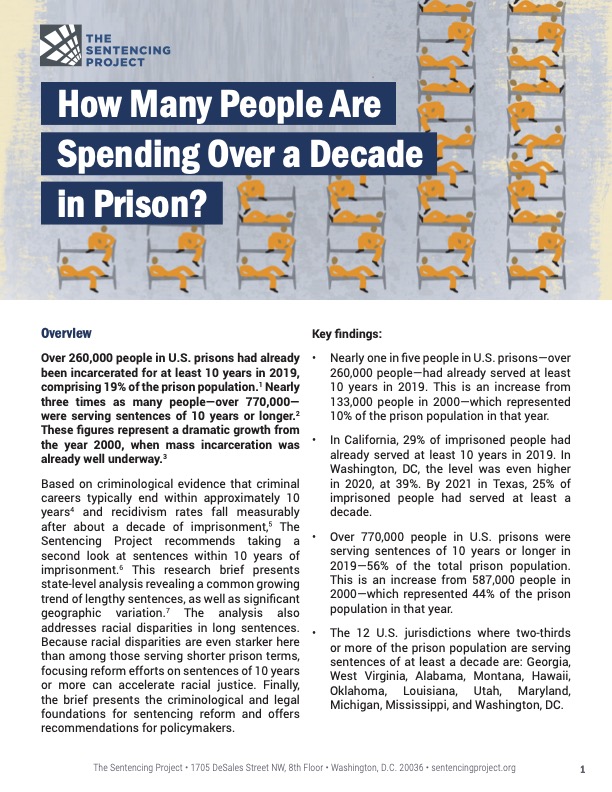 A new study from The Sentencing Project, a nonprofit organization in Washington D.C., that advocates for effective and humane responses to crime, find that more than 260,000 people in U.S. prisons had already been incarcerated for at least 10 years in 2019, comprising 19 percent of the total prison population. This is an increase from 133,000 people in 2000 — which represented 10 percent of the prison population in that year.
A new study from The Sentencing Project, a nonprofit organization in Washington D.C., that advocates for effective and humane responses to crime, find that more than 260,000 people in U.S. prisons had already been incarcerated for at least 10 years in 2019, comprising 19 percent of the total prison population. This is an increase from 133,000 people in 2000 — which represented 10 percent of the prison population in that year.
In 2019, over 770,000 people in U.S. prisons were serving sentences of 10 years or longer — 56 percent of the total prison population. This is an increase from 587,000 people in 2000 — which represented 44 percent of the prison population in that year. One in every seven people in U.S. prisons is serving a life sentence.
In 2019, Black Americans represented 14 percent of the total U.S. population, 33 percent of the total prison population, and 46 percent of the prison population who had already served at least 10 years. The study found that the over-representation of people of color is further magnified among people serving even longer sentences in some jurisdictions. Three quarters of Californians who have served over 15 years in prison are people of color. In Washington, D.C., 96 percent of those serving sentences of 15 years or longer in 2020 were Black men. In Texas, Black people represented 34 percent of the total prison population in 2020, but 45 percent of people with 25 or more years served in 2021.
The study states that the over-representation of Black Americans among the prison population serving lengthy sentences stems in part from racial disparities in serious criminal offending. But it also notes that “biased criminal justice policies and practices exacerbate the over-representation of Black Americans among those serving lengthy prison terms. This happens through mechanisms such as racial disparities in pretrial detention, implicit bias in prosecutorial charging decisions and plea offers, sentencing laws and policies that prolong prison terms for people with criminal histories, and biased parole decision-making.”












